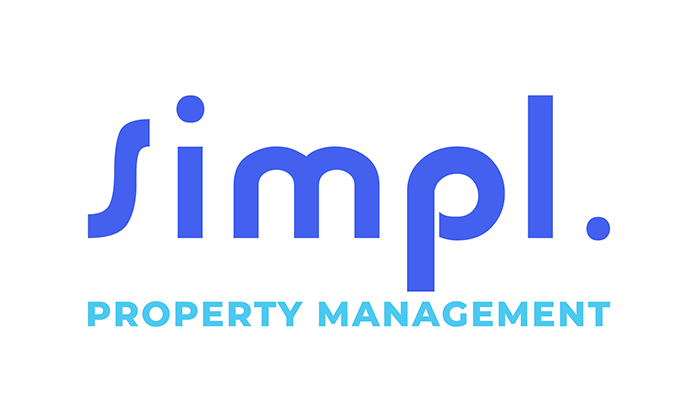Get to know what influence management fees for commercial property management in Kenya.

As someone who has delved into the world of commercial real estate, I understand the challenges and complexities that come with managing these properties. It’s not an easy task, but fear not! In this article, you will learn the industry standard fees associated with managing commercial properties in Kenya, specifically in Nairobi, including:
- How management fees are structured
- What standard property management fees are
- What influences the pricing for these services
- Additional costs landlords might incur related to the management of their properties
- An overview of how landlords can recoup some of these fees
How Much Does Commercial Property Management Cost?
When it comes to commercial property management fees, they are typically structured in one of two ways. Let’s break them down:
Percentage of Gross Receipts: Paying for Performance
One common fee structure is based on a percentage of the gross total rent collections from your property. This fee ranges from 7.5% to 2.5% of the total gross collection (Guided by Estate Agents Act Cap 530). It’s important to note that gross receipts include not just rent, but also additional charges incurred by tenants during their occupancy, such as service charge.
I remember a property I managed where tenants had unique requirements, such as parking and signages. These additional charges contributed to the overall gross receipts, and the property management fee was based on this inclusive amount. It’s essential to understand what falls under gross receipts to have a clear picture of the costs.
Flat Fee: Tailored for Vacancy or Large-Scale Properties
For properties with significant vacancy rates or large-scale buildings, a flat fee structure is often utilized. The property owner pays a fixed monthly fee based on the property manager’s assessment of the maintenance required. This approach offers predictability and flexibility, especially when dealing with fluctuating occupancy rates.
Factors Influencing the Cost: What Drives Property Management Fees?
Now that we’ve covered fee structures, let’s explore the factors that influence the cost of property management services. Understanding these variables will help you gauge the range of rates you might encounter. Remember, it’s not just about finding the lowest price but ensuring quality service. Here are the key influencers:
1. Square Footage and Portfolios: Size Matters
The larger your property’s square footage or portfolio, the greater your potential for negotiating a lower management fee. Economies of scale come into play, and property management firms may offer reduced rates to secure larger clients. So, if you have substantial square footage or a portfolio of properties, you might be able to secure a more favorable rate.
2. Number of Tenants: The Complexity Factor
Managing a single-tenant, large office building requires fewer resources compared to a building with multiple smaller tenants. The more tenants there are, the more rent checks to collect, leases to administer, and client relationships to maintain. If you have a building with fewer tenants given its size, there may be room for negotiation in terms of the management fee.
3. Vacancy Rates: Impact on the Bottom Line
Properties with high vacancy rates generate less revenue, resulting in lower management fees, especially for structures based on a percentage of gross receipts. However, properties with low vacancy rates may command higher fees due to the increased workload and demand for services. It’s important to consider the state of your property’s occupancy when evaluating potential management fees.
4. Anticipated Amount of Work: Assessing Property Condition and Plans
Experienced property managers have a keen eye for estimating the amount of effort required to manage a building. They consider factors such as the property’s condition, the number and complexity of leases, and your investment strategy. A property with deferred maintenance may generate more service calls, while substantial capital improvements require collaboration with the property management company. These factors contribute to the overall workload and influence the fee.
5. Service Offerings: All-Inclusive or Additional Services
Most property management firms offer a comprehensive package of services without a menu pricing option. However, some companies may provide additional ancillary services like asset management or parking management, which could impact the overall fee. While these extra services may add value, they might also affect the cost. It’s essential to clarify what services are included in the agreement before making a decision.
Payment Terms: When and How to Settle the Bill
Unlike leasing or acquisition fees, property management fees are typically paid on a monthly basis. You’ll receive a monthly invoice for the previous month’s expenses, and payment due dates can often be negotiated to suit your specific needs.
Recouping Fees: Passing Costs On to Tenants
Here’s a fascinating twist! In some cases, you might be able to pass on property management fees to your tenants through the building’s operating expense or most commonly known as service charge. However, the specific fees that can be passed through depend on the terms outlined in each tenant’s lease agreement. It’s crucial to thoroughly review lease contracts to understand what costs can be shared.
Additional Costs: Expenses Not Covered by Tenants
While tenants might cover some expenses, there are certain costs that landlords are responsible for:
- Legal Fees: Expenses related to legal matters concerning the building generally fall under the landlord’s responsibility.
- Capital Expenditures: Major investments in the property, such as renovations or upgrades, are typically the landlord’s responsibility.
- Leasing Costs: Expenses associated with finding and securing new tenants are typically covered by the landlord.
It’s important to account for these costs in your property’s budget, as they are not passed through to tenants.
Conclusion:
As you can see, professional property management services are essential for maintaining and maximizing the value of your commercial real estate investment. While the costs associated with property management vary, understanding fee structures, influential factors, and payment terms will help you make informed decisions.
When searching for a property management firm, look for registered property managers with organizations, such as Estate Agents Registration Board and Institution of Surveyors of Kenya. Our property management team is proud to hold registrations in these organizations, and we have extensive experience in the Nairobi market.
If you’re interested in learning more about property management and the services we offer, don’t hesitate to contact us today. We’re here to assist you on your property management journey and help you achieve the best possible results for your investments.
